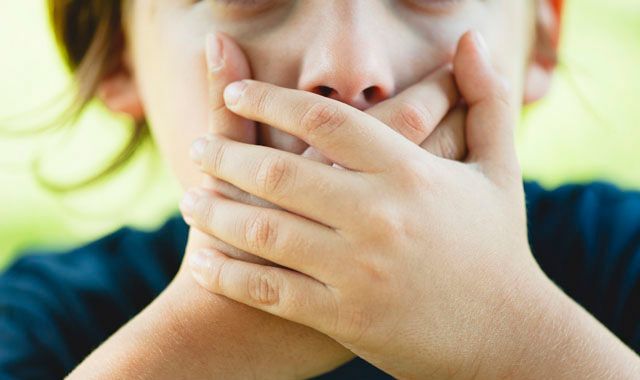Study finds more than a third of 12-year-olds embarrassed by their teeth
A recent survey by the Health and Social Care Information Centre in England found that over a third of 12-year-olds, and 28% of 15-year-olds, have been embarrassed to laugh or smile in the past three months, due to how they felt about their condition of their teeth.

A recent survey by the Health and Social Care Information Centre in England found that over a third of 12-year-olds, and 28% of 15-year-olds, have been embarrassed to laugh or smile in the past three months, due to how they felt about their condition of their teeth.
The Children’s Dental Health (CDH) Survey 2013, which examined the dental health of children in England, Wales and Northern Ireland, showed reductions in the proportions of 12 and 15-year-olds with obvious decay in their adult teeth since the last time the survey was carried out in 2003. However, tooth decay* was still found in 34 percent of 12-year-olds (down from 43 percent in 2003) and 46 percent of 15-year-olds (down from 56 percent in 2003).
Related reading: New Study finds beaver teeth could provide insight on human tooth decay
The 12 and 15-year-olds surveyed filled in a self-assessment to capture their perceptions and attitudes towards their own dental health. Interestingly, the numbers for 12-year-olds who presented with tooth decay were similar to the percentage of that group who reported being embarrassed by their smile.
Among 12-year-olds, 69 percent of boys and 85 percent of girls reported brushing their teeth at least twice a day. Among 15-year-olds, 73 percent of boys and 89 percent of girls said this. Furthermore, out of the 12-year-olds, 16 percent said they have sugary drinks four or more times a day. In the 15-year-old group, 14 percent reported this.
Related reading: Runners at higher risk for tooth decay
While the report also contains data on five and eight year olds, they/their parents were not requested to fill in this self-assessment and therefore there is no data on this issue for children of these ages. However, the survey did find that around a third (31 percent) of five-year-olds and 46 percent of eight-year-olds have decay in their milk teeth. Due to changes in survey methodology, it was unfortunately not possible to compare tooth decay data from the 2013 survey to that of the 2003 survey.
*For the purpose of the survey, decay was defined as serious untreated decay, such as decay in the dentine of the tooth, or decay that had been treated by fillings or extractions.
The full report can be viewed online at http://www.hscic.gov.uk/pubs/ChildDentalHealth.
Oral Health Pavilion at HLTH 2024 Highlighted Links Between Dental and General Health
November 4th 2024At HLTH 2024, CareQuest, Colgate-Palmolive, Henry Schein, and PDS Health launched an Oral Health Pavilion to showcase how integrating oral and general health can improve patient outcomes and reduce costs.
Floss & Flip Flops Episode 14: Children's Dental Health Month with Irene Iancu
February 1st 2023The Sanders Sisters invite Irene Iancu, RDH onto the microphone to discuss Children's Dental Health Month, discussing the importance of prevention, counseling and patient-centered care for our pediatric patient population.
Episode 31: Dentsply Sirona Implant Announcements
September 30th 2021DPR’s Editorial Director Noah Levine sat down with Gene Dorff, Dentsply Sirona’s group vice president of implants and Dr. Dan Butterman to review several big announcements the company made in the arena of implants during Dentsply Sirona World 2021 in Las Vegas.